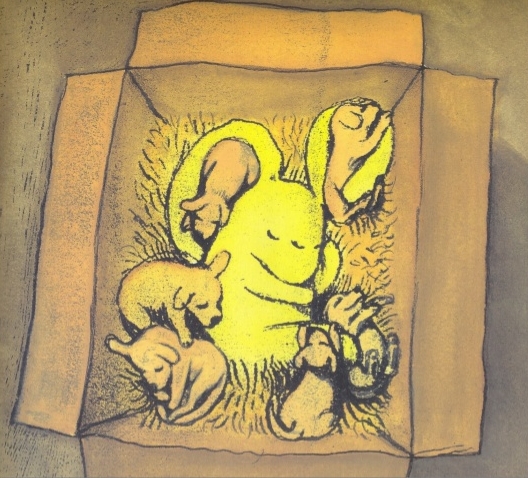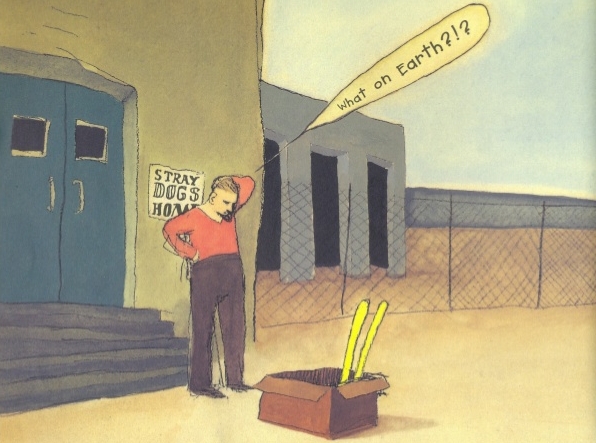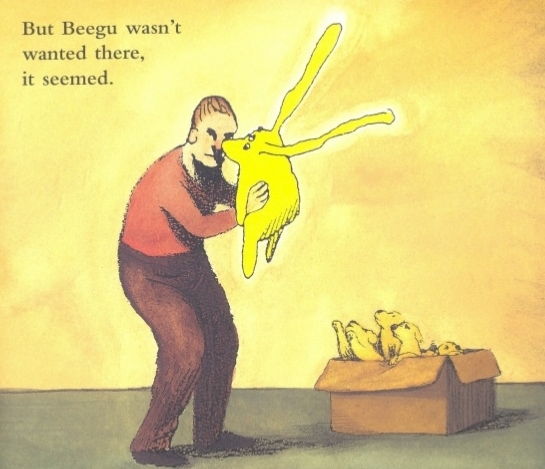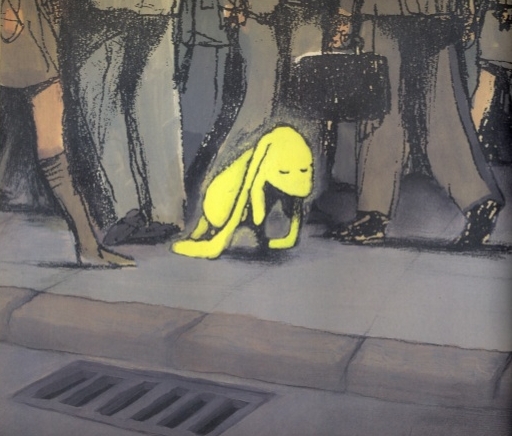Beegu: a three eyed, long eared alien child reminds us to be welcoming and inclusive
/Feeling lost, unwelcome or out of place is one of childhood’s certainties. They’re feelings that will come to every child in one measure or another. Teens, of course, continue to have those feelings, and so do adults.
For displaced people, regardless of age, those feelings are frequently more than an emotional reaction—they can be the cold hard facts of life.
Beegu is a displaced alien child who knows those feelings and realities. She's a child who is "not supposed to be here."
Like displaced people around the world, Beegu has found herself lost after a tragedy. (Her spaceship has crashed.) As Beegu tries to find a place where she is safe and welcome, she listens for the call of her mother.
Beegu thinks she has found a place in box full of puppies, but an adult keeper pushes her away—after all, she’s not a puppy.
Then Beegu finds a school playground: “… she thought she’d found the perfect place … and it was!”
She develops an instant rapport with the children, they play and laugh together, until a teacher arrives and once again Beegu is pushed away, alone and lost.
But eventually she is reunited with her parents. She tells them:
…all about life on Earth. How Earth creatures were mostly big and unfriendly, but there were some small ones who seemed hopeful.
In an apparently universal human character quirk, we seem to struggle with embracing otherness. Beegu implores us to notice, welcome and embrace those who are ‘other’ to us. There are some really wonderful ideas and thoughts prompts in this book—ideas and thoughts that are just as important for adults as for children. Here are a few:
Language and appearances don’t need to be a barrier to friendships—the puppies and the children all see past the differences in Beegu and reap the benefits of a unique friendship: warmth and comfort for the puppies, laughter and amazement for the children. The adults who resolutely evict Beegu miss all of that.
There’s room for more than one culture in a life or a community—when Beegu is reunited with her parents, she keeps the hula-hoop given to her by the children in the schoolyard and carries that little bit of Earth culture into her life. It’s a lovely metaphor for inviting new and interesting parts of different cultures into our lives.
Everyone deserves a home and a family—they’re fundamental needs and rights. Beegu’s search is all about finding a place to call home and in the end when she finds her parents and her home, she carries a special affection for the ‘small ones’ on Earth. It’s a nice reminder about the importance of uniting families and ensuring homelands are protected.
Some small reading hints:
Beegu is ideal to read when children are excluding others—it's a lovely, gentle way to encourage inclusivity. It's also nice to read when your child is the one being excluded.
A good way to relate the story explicitly to refugees or displaced people, if that's something you want to do, is to couple it with Hungry Planet or Where Children Sleep. Both of those books put a human face to vastly diverse circumstances around the world—they'll also help to make the overarching moral of Beegu more easily understood.
For a book to do its best work in helping children discover life narratives it needs to be read often, and Beegu has just enough pathos to draw children to it over and over again. There’s a whole lot of life and humanity in Beegu herself, even though she’s a yellow, three-eyed, long eared alien.
In many ways, Beegu is the friend most children are looking for—and her story is wonderful reminder to look for those friends in any circumstance.
by Alexis Deacon – Red Fox, 2003
ages 2 to 8 years | heartwarmers + imagination











